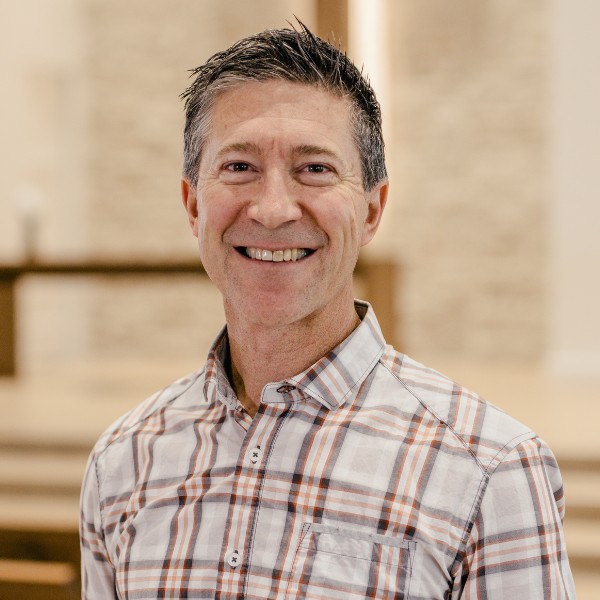I am reading a biography of John Newton. Newton was born in England in 1725 to a tender and committed Christian mother and a hardened father who was a captain of a ship. Newton’s mother died just before his 7th birthday, and by age 11 his father was taking him on voyages across the seas on the ship he captained. This was not an environment that was very conducive to an innocent, enjoyable childhood, and by the time Newton was a young man, he was living a hedonistic, shameful life working aboard various sea vessels, among them slave-trading ships. The historical record is not clear whether he actually raped female slaves, but by his description it seems likely. Slave ships were “sexual free-for-alls . . . that captains in the trade regarded as theirs by right.” He called himself “a ringleader in blasphemy and wickedness.”
“Not content with running the broad way myself, I was indefatigable in enticing others; and, had my influence been equal to my wishes, I would have carried all the human race with me. I had the ambition of a Caesar or an Alexander, and wanted to rank in wickedness among the foremost of the human race.”
One night at age 22 his ship was caught in a ferocious storm. Battered and tottering, close to being sunk, Newton and his mates fought furiously to keep afloat. In a moment of terror, waves crashing all around, he cried out to God for help: “if this will not do, the Lord have mercy on us!” Somehow the ship survived the storm, and God, in His infinite grace and wisdom, used Newton’s desperate plea for mercy to change his hardened heart. In that moment and in the months to come, Newton was changed by the Gospel from a hardened, wicked man into a humble lover of Jesus. He penned the hymn “Amazing Grace,” and surely it was autobiographical. It remains the most beloved hymn in the English-speaking world 200 years later. Later in life, Newton discipled William Wilberforce, a British member of parliament who was probably the most influential politician in the vote to abolish the slave trade in the Empire. God has an incredible sense of irony – a former slave trader and abuser, saved by grace to become a pastor, hymn-writer and force to abolitionist!
Newton was not known as a great preacher. But one of his greatest contributions was as a letter writer. He was known as a “doctor of the soul,” identifying and helping people to understand their own spiritual maladies and the cures they would find in Jesus. In his day, letters were similar to the modern form of the blog. They were often read publicly. Tim Keller, pastor of Redeemer Presbyterian in Manhattan, wrote the Newton’s letters are “often blunt, yet always tender” (try balancing those two characteristics in any written communication!). Through his letters and hymns, Newton’s influence lives on, well beyond his life.
On his deathbed in 1807, another pastor, William Jay, went to visit him. His last recorded words were this: “My memory is nearly gone, but I remember two things: that I am a great sinner and that Christ is a great Savior.” There are no better truths to remember. How did John Newton foster a life of such closeness with Christ? How did he influence so many who struggled spiritually? One reason is that Newton believed that humans are created with a great thirst for joy, and that we can only experience the joy we seek in the infinite Source of joy, the living God.
“Until we are reconciled to God by the blood of Jesus, everything to which we look for satisfaction will surely disappoint us. God formed us originally for Himself, and has therefore given the human mind such a vastness of desire, such a thirst for happiness as He alone can answer; and therefore, till we seek our rest in Him, in vain we seek it elsewhere. Neither the hurries of business, nor the allure of pleasure, nor the accomplishment of our wishes can fill up that mighty void that is felt within.”
This is demonstrated over and over in life. Remember when Tiger Woods was good at golf, before he was discovered as a serial adulterer and his life took a radical turn? He had everything – tracking to be the best all-time in his career, a beautiful wife and children, billions of fans who respected and adored him, and a billion or so dollars in his bank account. It seems incredible that all of this would not be enough to satisfy him. Until we see that this is true of many people who have been given so much. Newton would say that this is not surprising – the gifts of God were never intended to fill us with the joy that He alone can provide.
But if this is true, then why are we Christians so often unfulfilled and unsatisfied? One obvious reason is that we live in a sin-filled world with plenty of residual sin within us, and we will not be at home here. Our true home is in heaven
But if this is true, then why are we Christians so often unfulfilled and unsatisfied? One obvious reason is that we live in a sin-filled world with plenty of residual sin within us, and we will not be at home here. Our true home is in heaven. But in the meantime, John Newton the spiritual doctor counseled his flock to “practice the daily discipline of joy in Jesus.” It is a discipline because we are daily distracted by other allurements we think will satisfy, spiritual laziness, and sin struggles. It is a spiritual remedy because if we can daily remind ourselves of all that we have in Christ, and thank Him for it, we will be increasingly satisfied in Him. Newton writes:
“Wonderful are the effects when a crucified, glorious Savior is presented by the power of the Spirit . . . This sight destroys the love of sin, heals the wounds of guilt, softens the hard heart, and fills the soul with peace, life and joy; [it] makes obedience practicable, desirable and pleasant. If we could see this more, we should look less at other things. But alas! Unbelief places a veil before our sight, and wildly-mindedness draws our eyes another way. A desire to be something that we are not, or to possess something that we have not, or to do something that we cannot – some vain hope, or vain fear, or vain delight, comes in like a black cloud, and hide our Beloved from our eyes. This shows what poor creatures we are! Notwithstanding our hope that we are converted, we need a new conversion every day.”
These are wise words for our own restlessness and unhappiness. Sister or brother, practice the daily discipline of joy in Jesus. Practice fixing the eyes of you heart upon our Savior daily, who knows us better than anyone else and yet loves us completely. Nothing else compares to this undeserved gift, and nothing else will empower us to rightly value the countless other gifts – family, career, money, success, health – that God gives us.
Pastor David

